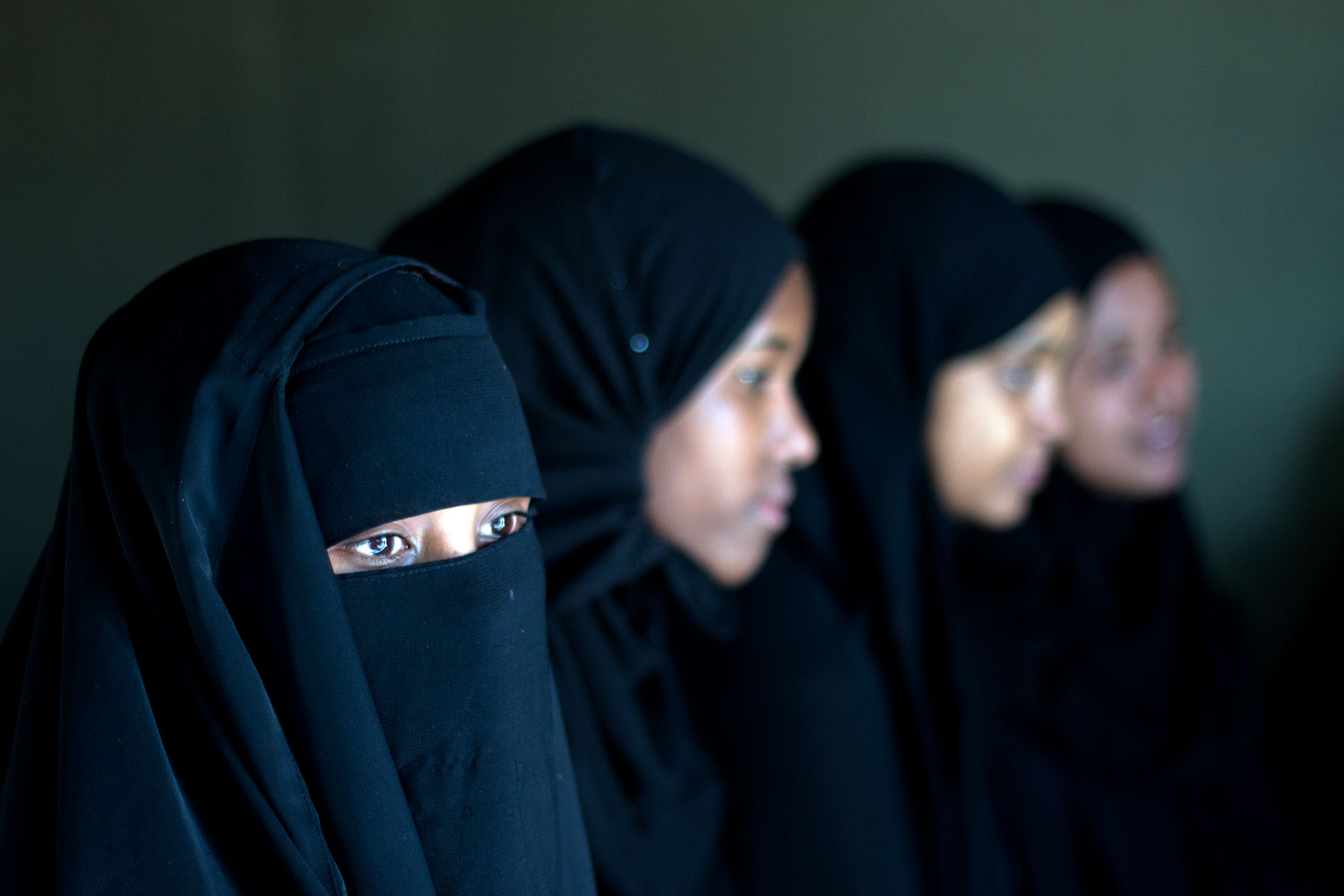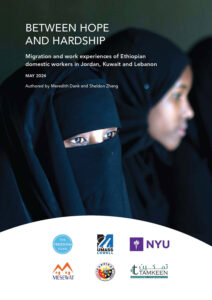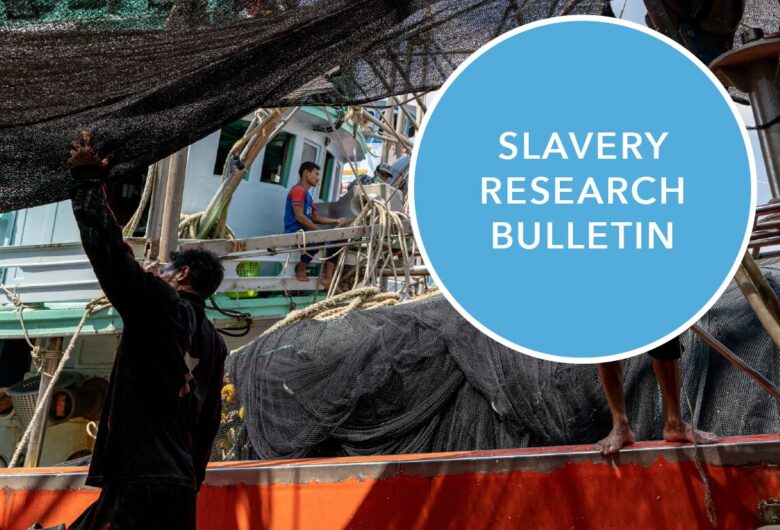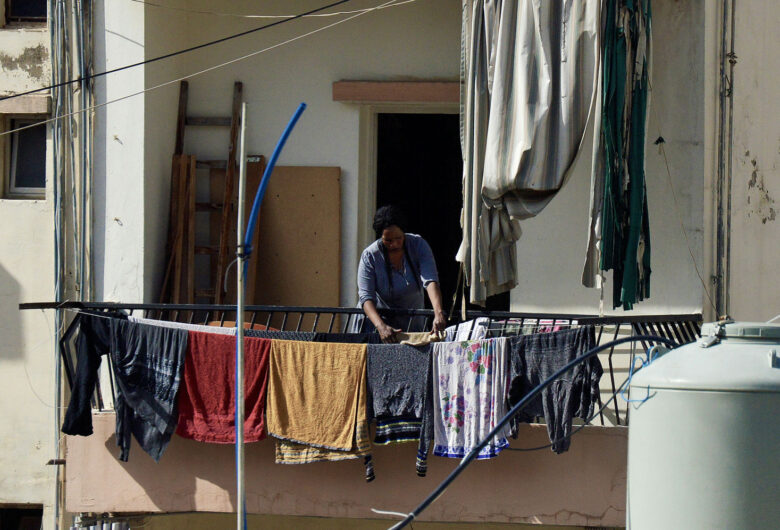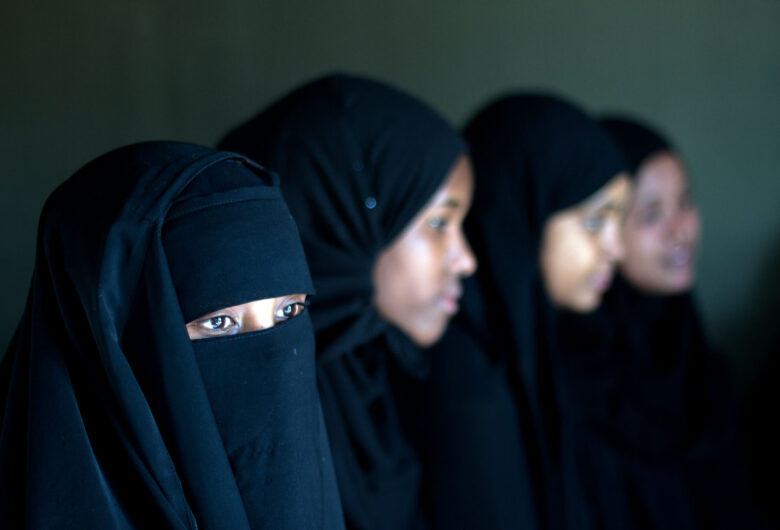A newly released study, produced by New York University and The Freedom Fund, sets out to understand the decision-making, migration patterns, employment experiences, social networks and help-seeking behaviours among Ethiopian migrant domestic workers (MDWs) in three Middle Eastern countries: Lebanon, Kuwait, and Jordan.
Due to the hidden nature of human trafficking and employment in private households, accurate and detailed information about labour trafficking and domestic servitude in the Middle East is difficult to determine. This study helps fill a notable evidence gap by centring the voices of Ethiopian MDWs currently working and residing in the Middle East.
This project sought to achieve three main objectives:
- Explore victim experiences from recruitment through abuse at employment among domestic workers who are trafficked;
- Enhance understanding and knowledge of domestic servitude in the Middle East to improve prevention and responses in the region—especially by governments; and
- Identify strategies that can make this exploitation and crime more visible and provide survivors with greater opportunities for protection and justice.
Snapshot findings include:
- In Lebanon, interviewees were frequently unemployed or doing freelance work and did not hold a valid visa; in Kuwait, most interviewees held current, correct-type visas and had access to resources such as cell phones.
- In all three countries, participants reported working long hours well over the legal limit, were not given breaks or days off, and were often not permitted to leave the workplace.
- Recruitment fees paid by participants ranged from an average of USD 113 (Lebanon) to USD 258 (Kuwait).
- In all three countries, participants saw the Ethiopian embassies or consulates as unhelpful for either emergency or non-emergency help.
“… each house [I worked for] was as bad as the last. I worked for one woman for one year and three months, and that woman asked me why I became fat and sold me to a friend. That friend sold me to another friend. I had no documents with me. The employers were the ones changing the paperwork. This went on for three years — selling from one to another. I worked in more than eight houses.”
– Ethiopian woman currently living under irregular status in Kuwait
Many of the Ethiopian women in this study expressed their hope for a better future, underpinned by aspirations for increased financial stability and recognition as contributing members of their families. Yet, they are acutely aware of the hardships and challenges that accompany their roles as MDWs. Their experiences reflect a complex blend of resilience and vulnerability, highlighting their persistent pursuit of a brighter future despite the well-known adversities of migration.
The findings of Between Hope and Hardship: Migration and work experiences of Ethiopian domestic workers in Jordan, Kuwait and Lebanon aim to support governments, multilateral actors, and grassroots organisations in Ethiopia and in the Middle East to reduce abuse and exploitation of MDWs.
Click below to access the report.
Photo: A group of Ethiopian women who have returned from Saudi Arabia, waiting to disembark for their respective home areas after receiving orientation by UNICEF staff. ©UNICEF Ethiopia/2013/Ayene
